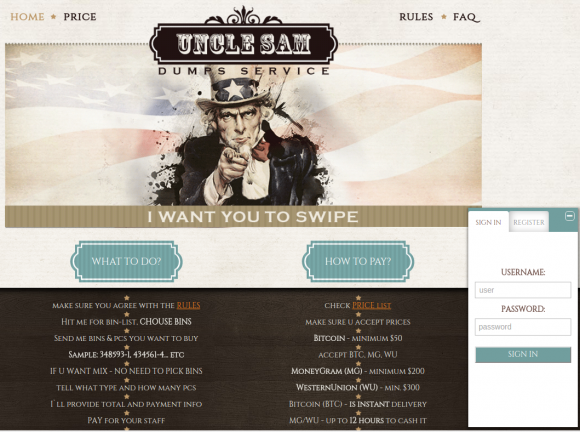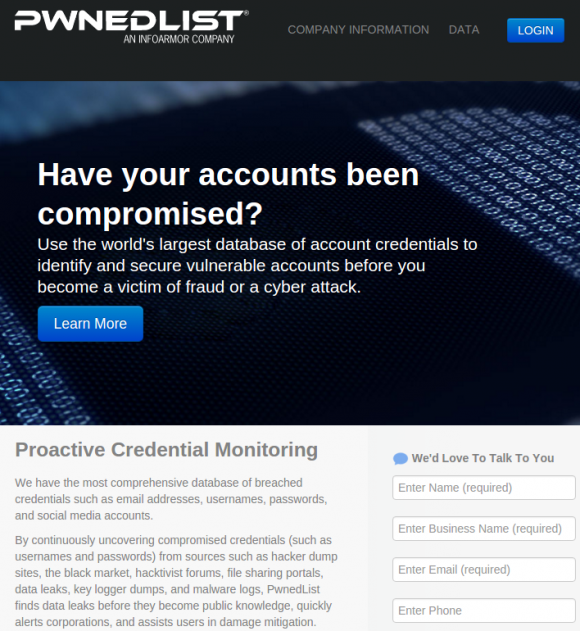Identity thieves stole tax and salary data from payroll giant ADP by registering accounts in the names of employees at more than a dozen customer firms, KrebsOnSecurity has learned. ADP says the incidents occurred because the victim companies all mistakenly published sensitive ADP account information online that made those firms easy targets for tax fraudsters.
 Patterson, N.J.-based ADP provides payroll, tax and benefits administration for more than 640,000 companies. Last week, U.S. Bancorp (U.S. Bank) — the nation’s fifth-largest commercial bank — warned some of its employees that their W-2 data had been stolen thanks to a weakness in ADP’s customer portal.
Patterson, N.J.-based ADP provides payroll, tax and benefits administration for more than 640,000 companies. Last week, U.S. Bancorp (U.S. Bank) — the nation’s fifth-largest commercial bank — warned some of its employees that their W-2 data had been stolen thanks to a weakness in ADP’s customer portal.
ID thieves are interested in W-2 data because it contains much of the information needed to fraudulently request a large tax refund from the U.S. Internal Revenue Service (IRS) in someone else’s name. A reader who works at U.S. Bank shared a letter received from Jennie Carlson, the financial institution’s executive vice president of human resources.
“Since April 19, 2016, we have been actively investigating a security incident with our W-2 provider, ADP,” Carlson wrote. “During the course of that investigation we have learned that an external W-2 portal, maintained by ADP, may have been utilized by unauthorized individuals to access your W-2, which they may have used to file a fraudulent income tax return under your name.”
The letter continued:
“The incident originated because ADP offered an external online portal that has been exploited. For individuals who had never used the external portal, a registration had never been established. Criminals were able to take advantage of that situation to use confidential personal information from other sources to establish a registration in your name at ADP. Once the fraudulent registration was established, they were able to view or download your W-2.”
U.S. Bank spokesman Dana Ripley said the letter was sent to a “small population” of the bank’s more than 64,000 employees. Asked to comment on the letter from U.S. Bank, ADP confirmed that the fraud visited upon U.S. Bank also hit “a very small subset” of the ADP’s total customers this year.
ADP emphasized that the fraudsters needed to have the victim’s personal data — including name, date of birth and Social Security number — to successfully create an account in someone’s name. ADP also stressed that this personal data did not come from its systems, and that thieves appeared to already possess that data when they created the unauthorized accounts at ADP’s portal.
ADP Chief Security Officer Roland Cloutier said customers can choose to create an account at the ADP portal for each employee, or they can defer that process to a later date (but employers do have to chose one or the other, Cloutier said).
According to ADP, new users need to be in possession of two other things (in addition to the victim’s personal data) at a minimum in order to create an account: A custom, company-specific link provided by ADP, and a static code assigned to the customer by ADP.
The problem, Cloutier said, seems to stem from ADP customers that both deferred that signup process for some or all of their employees and at the same time inadvertently published online the link and the company code. As a result, for users who never registered, criminals were able to register as them with fairly basic personal info, and access W-2 data on those individuals. Continue reading →
 Over the past weekend, KrebsOnSecurity began hearing from sources at multiple financial institutions who said they’d detected a pattern of fraudulent charges on customer cards that were used at various Noodles & Company locations between January 2016 and the present.
Over the past weekend, KrebsOnSecurity began hearing from sources at multiple financial institutions who said they’d detected a pattern of fraudulent charges on customer cards that were used at various Noodles & Company locations between January 2016 and the present.



 The 2012 breach was first exposed when a hacker posted a list of some 6.5 million unique passwords to a popular forum where members volunteer or can be hired to hack complex passwords. Forum members managed to crack some the passwords, and eventually noticed that an inordinate number of the passwords they were able to crack contained some variation of “linkedin” in them.
The 2012 breach was first exposed when a hacker posted a list of some 6.5 million unique passwords to a popular forum where members volunteer or can be hired to hack complex passwords. Forum members managed to crack some the passwords, and eventually noticed that an inordinate number of the passwords they were able to crack contained some variation of “linkedin” in them. Redmond made the announcement almost as a footnote in its Windows 10 Experience blog, but the feature caused quite a stir when the company’s flagship operating system first debuted last summer.
Redmond made the announcement almost as a footnote in its Windows 10 Experience blog, but the feature caused quite a stir when the company’s flagship operating system first debuted last summer.

 “Based on the preliminary findings of the investigation and other information, the Company believes that malware, installed through the use of compromised third-party vendor credentials, affected one particular point of sale system at fewer than 300 of approximately 5,500 franchised North America Wendy’s restaurants, starting in the fall of 2015,” Wendy’s disclosed in their first quarter financial statement today. The statement continues:
“Based on the preliminary findings of the investigation and other information, the Company believes that malware, installed through the use of compromised third-party vendor credentials, affected one particular point of sale system at fewer than 300 of approximately 5,500 franchised North America Wendy’s restaurants, starting in the fall of 2015,” Wendy’s disclosed in their first quarter financial statement today. The statement continues: erabilities (flaws that attackers figure out how to exploit before before the software maker does) in Internet Explorer (IE) and in Windows. Half of the 16 patches that Redmond issued today earned its “critical” rating, meaning the vulnerabilities could be exploited remotely through no help from the user, save for perhaps clicking a link, opening a file or visiting a hacked or malicious Web site.
erabilities (flaws that attackers figure out how to exploit before before the software maker does) in Internet Explorer (IE) and in Windows. Half of the 16 patches that Redmond issued today earned its “critical” rating, meaning the vulnerabilities could be exploited remotely through no help from the user, save for perhaps clicking a link, opening a file or visiting a hacked or malicious Web site.
 Patterson, N.J.-based ADP provides payroll, tax and benefits administration for more than 640,000 companies. Last week, U.S. Bancorp (U.S. Bank) — the nation’s fifth-largest commercial bank — warned some of its employees that their W-2 data had been stolen thanks to a weakness in ADP’s customer portal.
Patterson, N.J.-based ADP provides payroll, tax and benefits administration for more than 640,000 companies. Last week, U.S. Bancorp (U.S. Bank) — the nation’s fifth-largest commercial bank — warned some of its employees that their W-2 data had been stolen thanks to a weakness in ADP’s customer portal.
